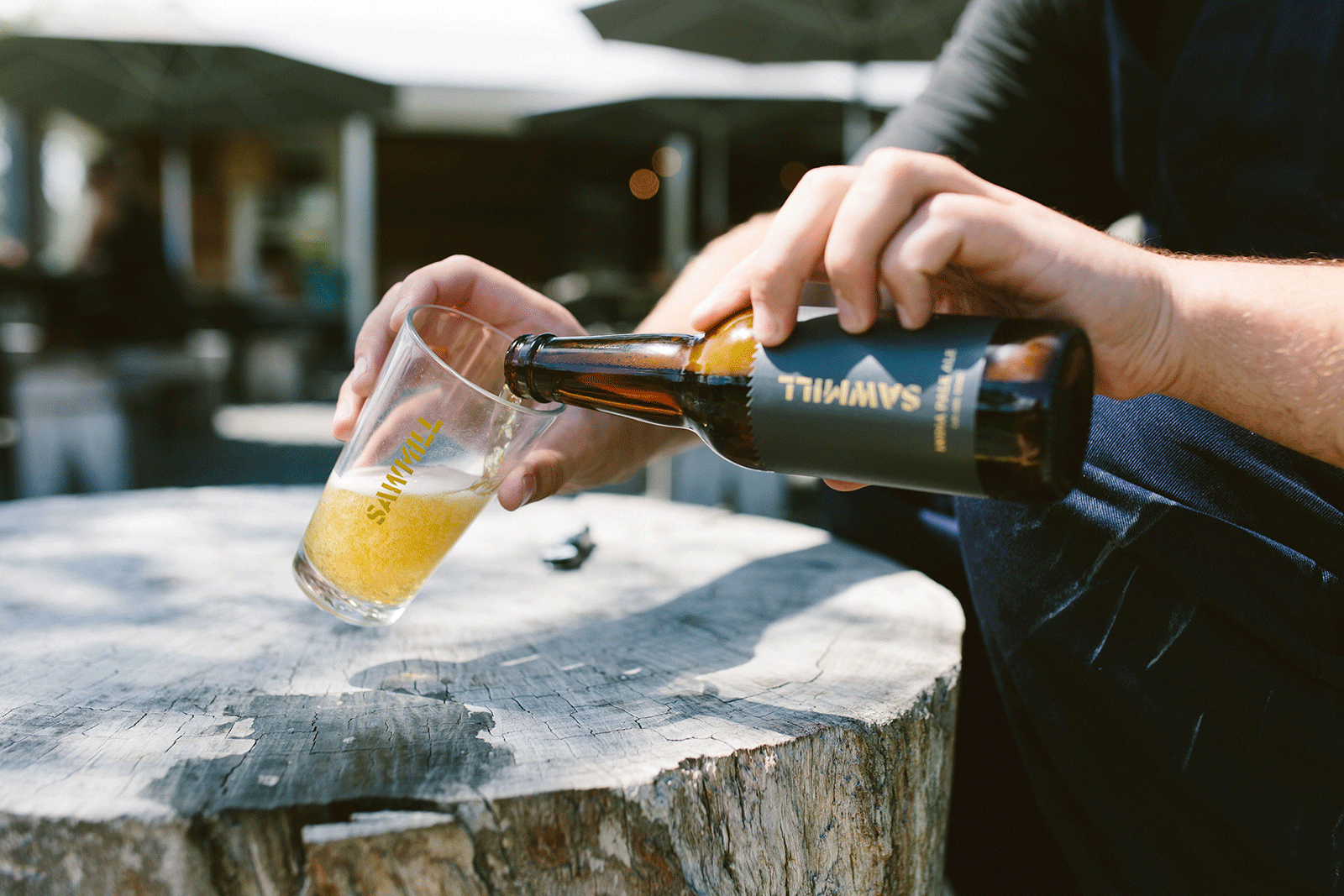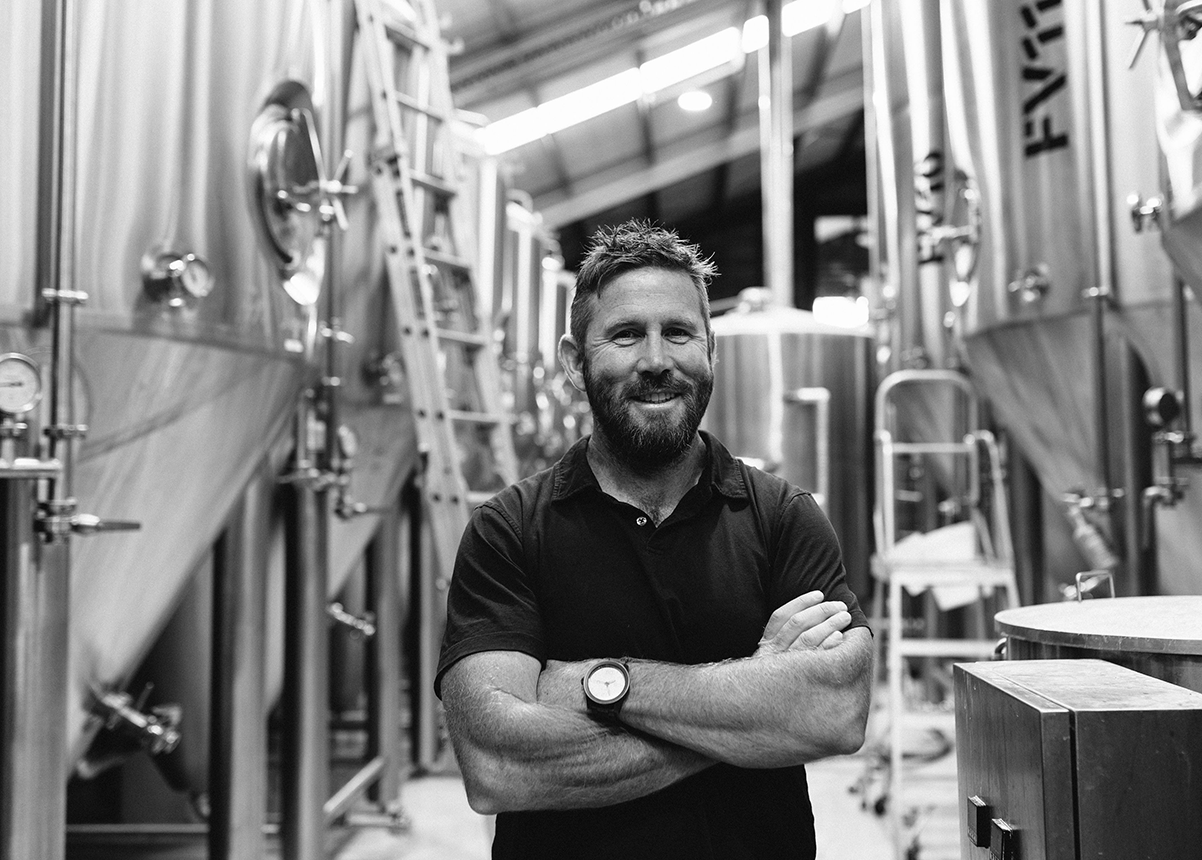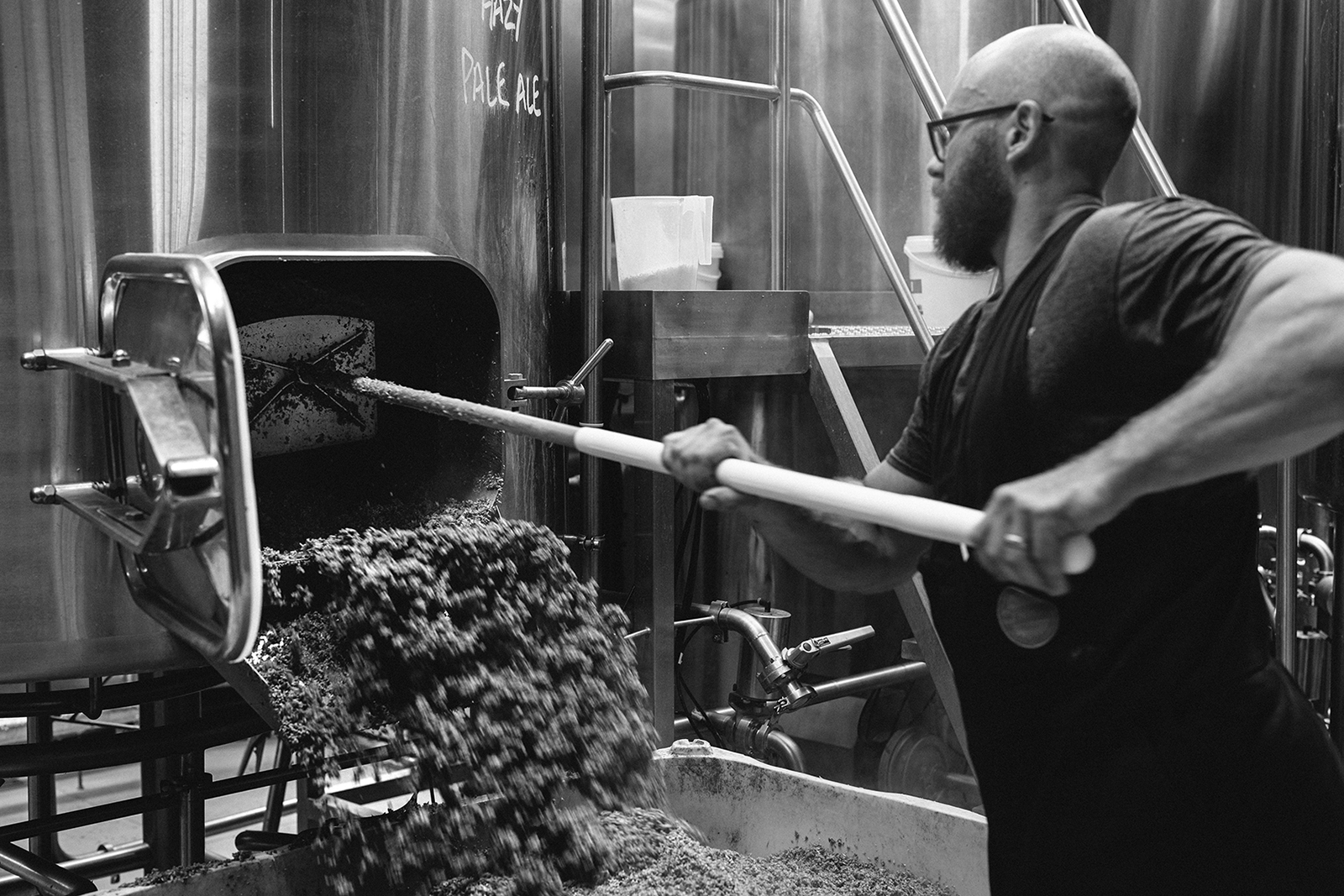With over 200 breweries in New Zealand producing more than 1,600 unique products, we are spoilt for choice when it comes to beer.
But these days, when Kiwis head to the beer isle in their local supermarket, it’s increasingly more than a hazy IPA with a funky label that they’re looking for.

Craft beer has continued to push the boundaries in terms of style and flavour, to the point where there isn’t much more to change. While some see this as a challenge to produce the next style craze, Mike Sutherland, from Sawmill Brewery, instead saw an opportunity for innovation in how brewers approach their processes.
“Ensuring our business is as efficient as possible is critical to who we are, and how we operate our business,” says Mike.
“Beer is a wonderful mix of art, science and engineering, and decarbonising gives us an opportunity to be more innovative than ever.”
In the average New Zealand brewery, fossil fuel use is responsible for an estimated 80% of process related emissions. Reducing the demand for these fossil fuels offers a key opportunity to simultaneously reduce costs and emissions in a brewery.
“I think decarbonisation should be really exciting – we need to challenge ourselves to be smarter, help develop new ways of doing things that can serve the dual purpose of cutting costs and future-proofing our business,” says Mike.
“To me, it is important that our industry moves now, to support the positive change we need to look after people and our environment.”

Sawmill’s decarbonisation journey
Sawmill Brewery has been independently operating in Matakana for 17 years and has made sustainability and efficiency a core part of its identity. They are New Zealand’s first, and only, B-Corp certified brewery and have introduced initiatives and changes to their operations – leading the way for their peers.
In addition to waste reduction and water conservation practices, Sawmill has optimised and improved its processes to improve energy efficiency and reduce demand for fossil fuels.
The installation of a heat recovery system in the Matakana brewery saves around 1.5 million litres of water and 6,000 kg of LPG every year, by recycling the water used to chill wort back into the hot water tank.
Solar panels installed in 2019 were also generating up to 97% of the breweries power, prior to a brewery fire in 2019 which damaged the system.
“The big-ticket stuff is still to come. In the meantime, we’re always doing what we can to improve our practices and make that information available to other businesses,” says Mike.
The main energy consuming operations at the Matakana site are related to beer production and refrigeration processes. LPG, used in both the brewery and kitchen, is responsible for most of the site’s energy-related emissions, and accounts for 65% of overall energy consumption. Electricity is used for other processes such as cooling, pumping liquids, and running equipment.
The Sawmill team are consciously arming themselves with knowledge that supports effective and transformative changes for their next decarbonisation project.

The need for businesses to reduce their emissions and ‘do their bit’ for the climate is constantly in competition with other priorities. When Mike first started to work on decarbonising the brewery, he didn’t ask himself why, as a business, they should put this work first. Instead, he tried to think of a single reason why they shouldn’t.
By taking the time to research articles, studies, and documentaries about climate change, and understanding the impact of energy related emissions on our planet, Mike was motivated to start making changes within his business.
“For a lot of us, understanding more about the global situation, and the role that we play within that to reduce our own impact, that’s pretty motivating!” says Mike.
“But different people are motivated by different values or a drive for reducing costs.
“In our industry, our cost structure is heavily intertwined with our energy use – whether it’s fossil-fuelled or from the grid. That means that any improvements to processes that result in energy reduction will make them more profitable.”
Over time, Mike has found that the team’s efforts are not only helping to grow a more energy-efficient and profitable business. The businesses' climate action is also highly valued by the staff, customers, and the wider community.
A 3-step plan to get your business started
-
1
Set the foundations
Learn where to start on the journey to reduce energy and emissions in your business.
-
2
Make an action plan
Create an action plan and goals for your business - and make sure you bring your people along.
-
3
Assess your impact
Work out what will have the biggest impact for your business and focus on that to achieve your goals.
-
Do you work for a craft brewery?
EECA, the agency that backs Gen Less, offers a free self-paced programme specifically designed for breweries to help reduce their energy related emissions and the sector's impact on the climate.
Related content
-
Join the low carbon economy
Low carbon businesses are productive, cost-efficient and consumer-friendly. Where will you take climate action?
-
Open for climate-friendly business
Being climate-friendly isn’t a compromise, but a good business decision.
-
Find support
You don't have to go it alone when it comes to your sustainable business journey. Finding the right help can make all the difference.
